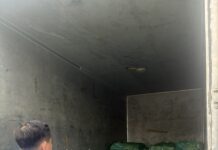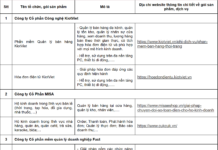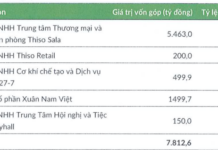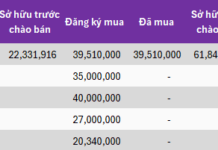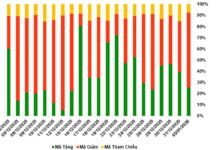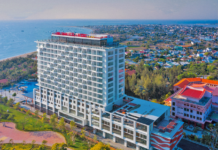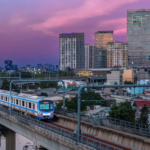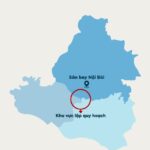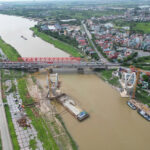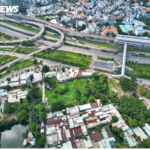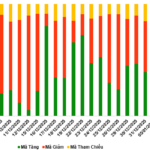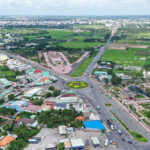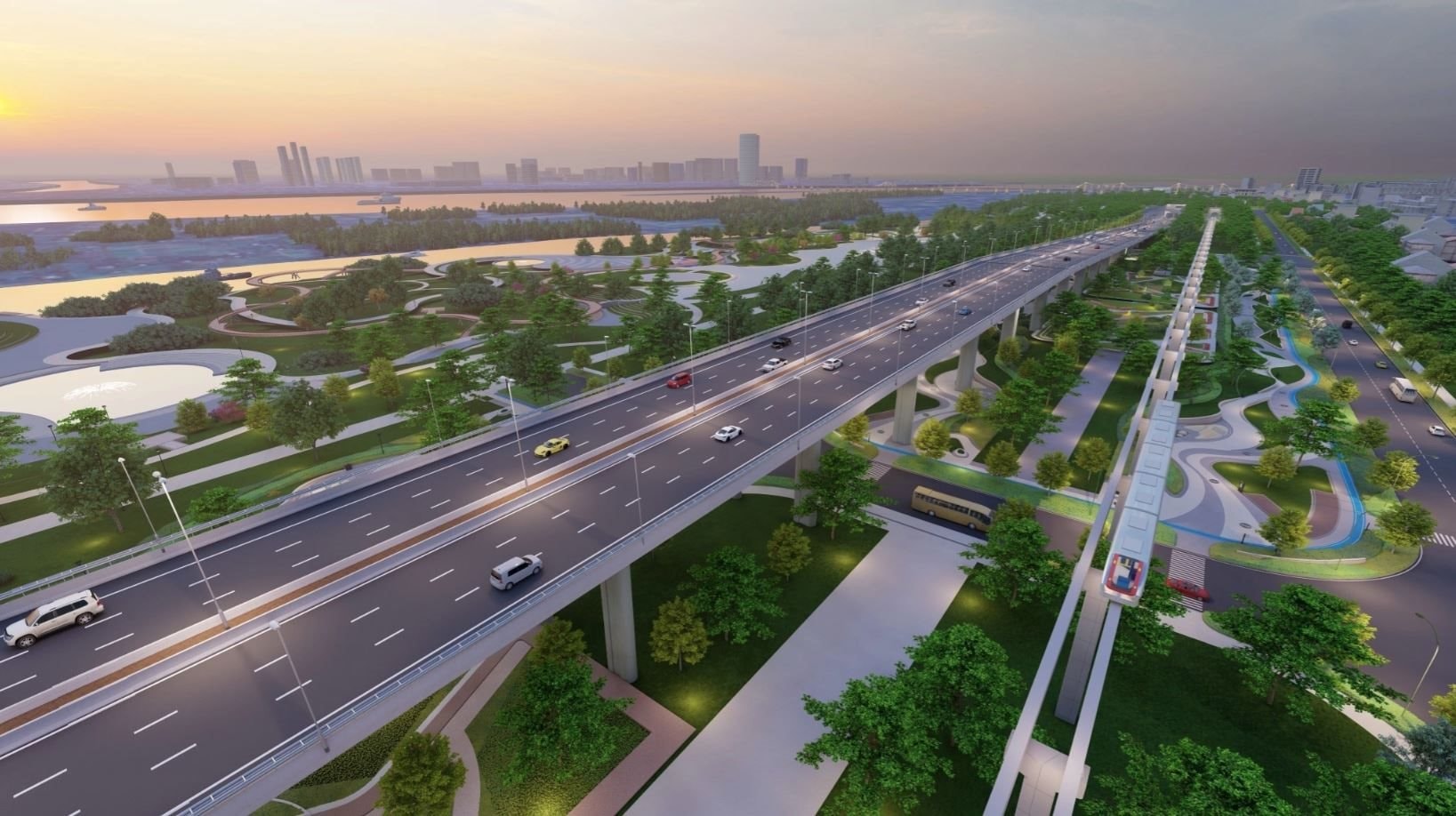
Panorama of the Red River Riverside Avenue
The Hanoi People’s Committee has recently reported to the Government on the implementation of the investment project for the Red River Landscape Avenue. The city has reviewed the proposal for research and execution of the project, focusing on accelerating investment and development along both banks of the Red River within the Ring Road 4 area (from Hong Ha Bridge to Me So Bridge).
According to the proposal by the joint venture of Deo Ca Group, Van Phu Company, MIK Group, and Dai Quang Minh Company, the project covers a research area of approximately 11,000 hectares, with the Red River Landscape Avenue spanning around 7,800 hectares. This area falls within the administrative boundaries of 16 wards and communes: Thuong Cat, Dong Ngac, Phu Thuong, Hong Ha, Linh Nam, Bo De, Long Bien, O Dien, Thanh Tri, Nam Phu, Hong Van, Me Linh, Thien Loc, Vinh Thanh, Dong Anh, and Bat Trang.
The project is divided into three urban zones along three segments of the Red River. The segment from Hong Ha Bridge to Thang Long Bridge will feature an eco-friendly park with sports facilities, including existing and new residential areas.
The segment from Thang Long Bridge to Thanh Tri Bridge will be a multifunctional area comprising public spaces, cultural venues, commercial hubs, and entertainment zones. This segment includes existing residential areas, redeveloped neighborhoods, new constructions, mixed-use developments, themed parks (technology, culture, festivals, history, arts, entertainment), craft villages, tourist ports, and landscaped greenery.
The segment from Thanh Tri Bridge to Me So Bridge will focus on commerce, services, transportation, and eco-agricultural parks. It includes existing and new residential areas, public spaces, service facilities, tourism sites, industrial clusters, craft villages, parks, and green spaces.
The total investment is estimated at VND 338 trillion, implemented through a public-private partnership (PPP) under a Build-Transfer (BT) contract. This is considered Hanoi’s largest infrastructure investment project to date.
The project is divided into three components: land clearance, construction of the Red River Landscape Avenue, and development of monorail urban railway lines. The city plans to compensate investors with land funds in the project area or other locations.
The Red River Landscape Avenue includes two road corridors along both riverbanks, totaling 92 km in length from Hong Ha Bridge to Me So Bridge. These roads will have 4-6 lanes, primarily running outside the dikes and existing residential areas.
Parallel to the riverbanks are two 85 km monorail lines, supporting a Transit-Oriented Development (TOD) model. The project will create a network of 8 open parks, eco-parks, and 12 themed parks covering a total area of 3,297 hectares, with several landmark structures located outside the dikes.
Hanoi plans to commence the project on December 19, aiming for completion by 2030.
According to the Hanoi People’s Committee, accelerating the project’s progress from 2026 is crucial for preparing resources, infrastructure, and development space for the 2026-2030 period. This will establish a new growth axis along the Red River, connecting central Hanoi with northern and southern regions, expanding urban, commercial, and service development.
The riverside avenue, linked with Tu Lien, Tran Hung Dao, and Ngoc Hoi bridges, will alleviate inner-city traffic congestion and enhance regional connectivity between Hanoi and provinces like Bac Ninh, Hung Yen, Vinh Phuc, and Thai Nguyen. This will form the Red River Economic Corridor, a strategic development axis for northern Vietnam.
This area includes 3,600 hectares of the Red River, over 5,400 hectares of riverbanks, and the remaining developed areas featuring historic villages like Bat Trang, Van Khe, Trang Viet, Tam Xa, and Xuan Canh, as well as outer-dike wards such as Tu Lien, Nhat Tan, Thanh Tri, and Linh Nam.
Becamex – VSIP – VRG Consortium Partners with Tay Ninh Province to Develop 1,500-Hectare Complex at Moc Bai Gateway
Becamex, VSIP, and VRG have jointly signed a Memorandum of Understanding (MoU) with the People’s Committee of Tay Ninh Province, marking the launch of a large-scale Industrial-Urban-Service Complex development plan in the Moc Bai area.
Hanoi Plans 3,000-Hectare Development to Create World-Class International Park
Hanoi is exploring the planning of a vast 3,000-hectare area in Dong Anh and Phu Dong communes to create world-class entertainment hubs, modern thematic parks, and international-standard recreational centers. The initiative also aims to develop lush green spaces along the banks of the Red River and Duong River, enhancing the city’s natural and urban landscape.



